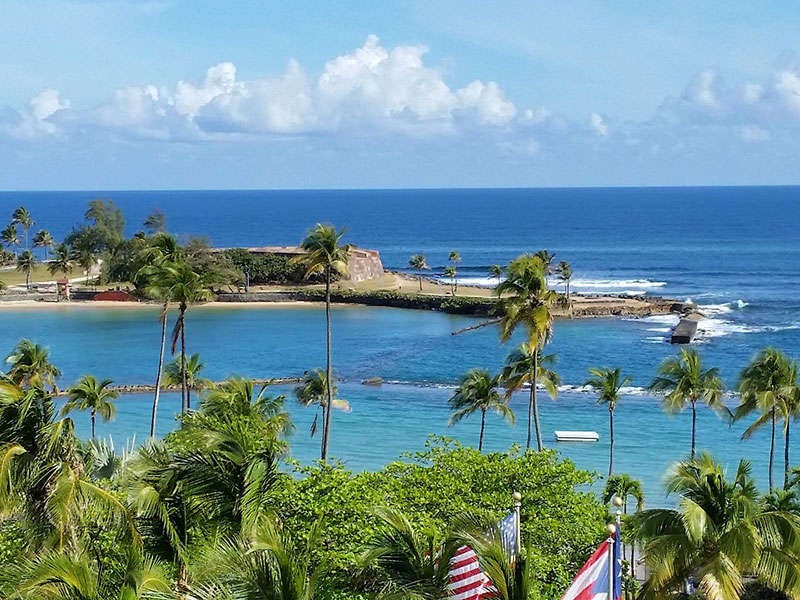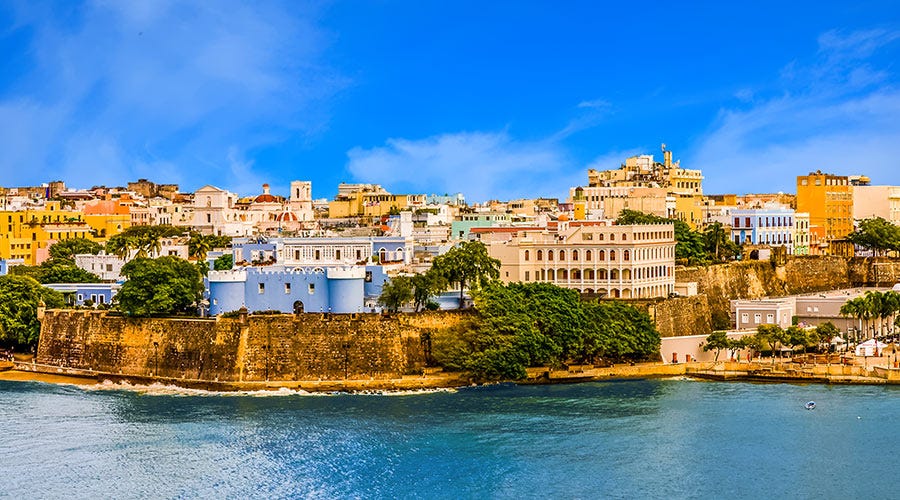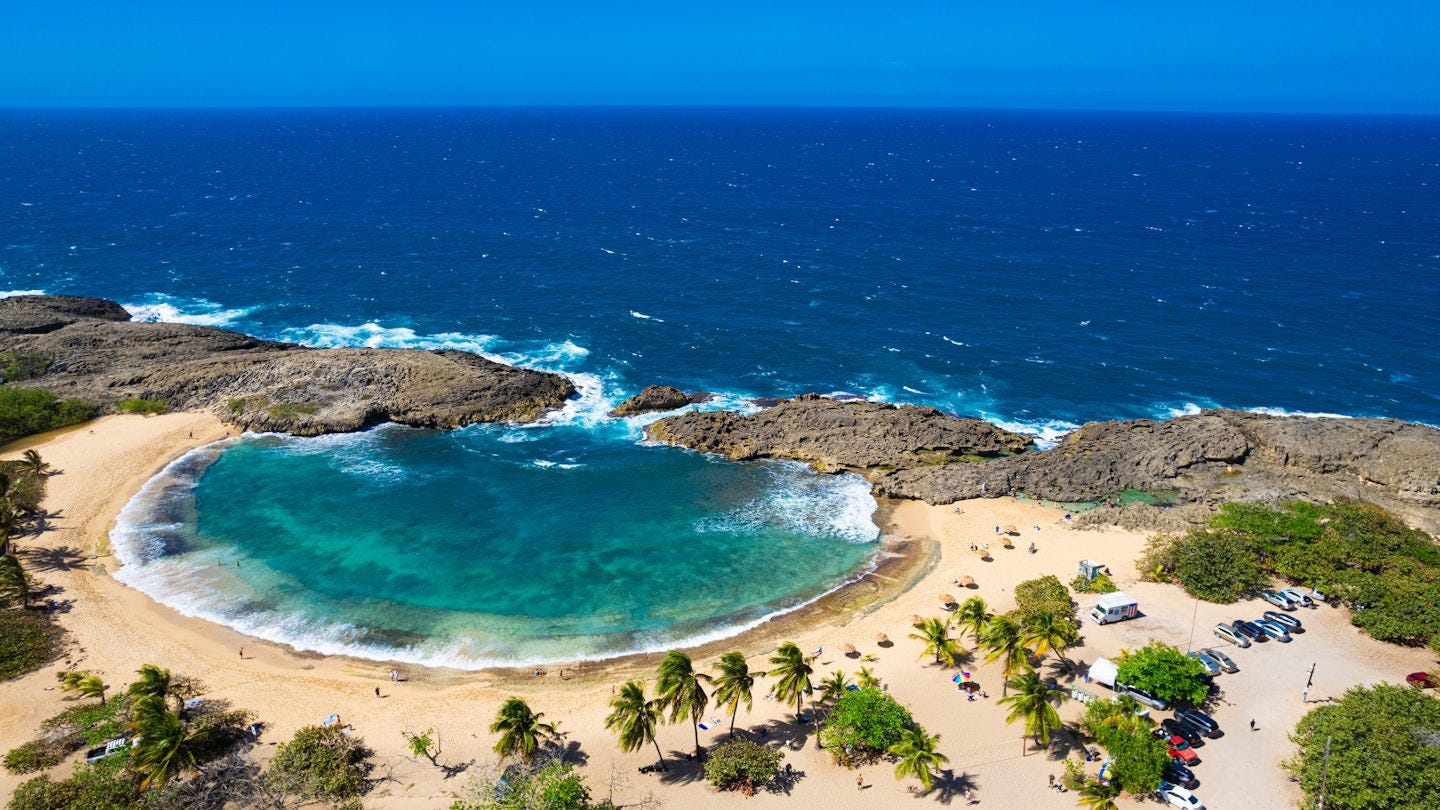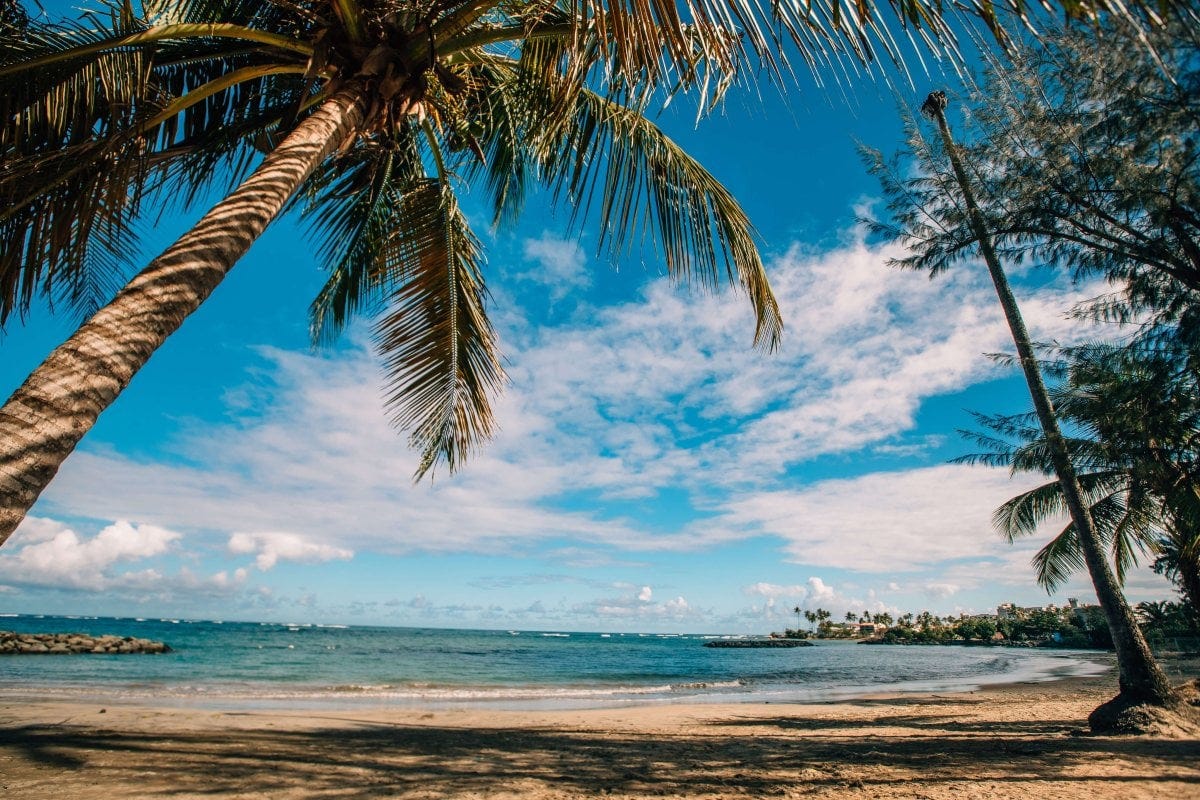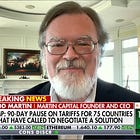For Tax Day: The One Legal Tax Haven Washington Can’t Touch
Everyone is writing today about tax deductions, Trump's tax cuts, and the usual advice. But here's a solution you may never have heard of that could cut your taxes to zero, inside the United States.
This article is free, but with Premium Membership you get MORE. Join today.
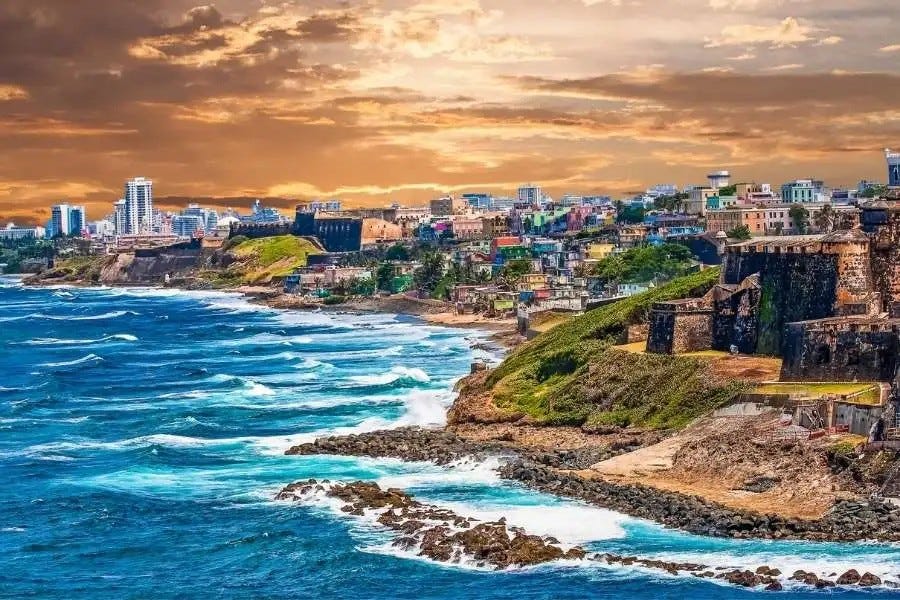
by Rod D. Martin
April 15, 2025
Happy April 15: the day the federal government reminds you that your money isn’t really yours.
Washington doesn’t ask for tribute. It takes it. Whether you live in Kansas or California, it doesn’t matter: you pay the IRS. You fund a machine that subsidizes corruption, punishes success, and metastasizes by design. Will Trump make it better? I think so. But it’ll still be expensive.
But what if I told you there was a way out?
There is. And it’s legal. It’s called Act 60, and it’s only available in Puerto Rico — the only true tax haven available for U.S. citizens without renouncing their citizenship or risking the wrath of the IRS.
Let me explain.
Why Puerto Rico Gets to be a Tax Haven
Puerto Rico is a U.S. territory, not a state. Its residents are U.S. citizens, but guess what: no taxation without representation. No Senators, no electoral votes, no income tax: it’s as American as apple pie. Income earned by bona fide residents of Puerto Rico from Puerto Rican sources is exempt from federal income tax. The IRS doesn’t touch it. You don’t file on it. It simply does not exist as far as Washington is concerned.
This isn’t a loophole. It’s the law; it’s also a bedrock principle of the American Revolution. And unlike offshoring schemes, it requires no shell corporations in Panama, or Swiss bank accounts. All you have to do is move there, stay there, and do business there. That’s it.
Historically, that wasn’t very attractive. Puerto Rico (which means “rich port”) was poor. And one of the principle reasons for that poverty was its oppressive tax system, in which the top rate kicks in at just $35,000/yr. income. To Puerto Rican Democrats, “the rich” include McDonald’s workers. Remember that come election time.
But the Caribbean is full of tax havens for wealthy foreigners who want to avoid U.S. income tax. And they all share one huge problem for Americans: unlike the citizens of most other countries, if you’re a U.S. citizen, you’re taxed on worldwide income unless you give up your citizenship — and even then, the IRS may chase you for an exit tax.
Unless…you’re in Puerto Rico, one of only a handful of spots on Earth where an American can legally avoid all U.S. tax (are you listening Greenland? You could be next). And that’s extremely attractive, especially to upper middle class and wealthy Americans who’d like to do business or even retire somewhere beautiful (and tax free) while remaining a U.S. citizen.
If only it weren’t for that pesky Puerto Rican income tax…
Enter Act 60 — Puerto Rico’s deliberate (and wildly successful) effort to attract capital, talent, and entrepreneurship. Because seriously: why should Puerto Rico be poor, not rich? And why should it let rich Americans fly right past it to other Caribbean islands when they could bring their money to San Juan instead?
In that creative bit of lawmaking lies the only true tax haven available to an American citizen anywhere on Earth.
What Is Act 60?
Act 60, formerly known as Acts 20 and 22, is Puerto Rico’s invitation to the world’s wealth creators. It has two core components:
Individual Resident Investor Incentive (formerly Act 22):
Capital gains earned after you become a Puerto Rico resident are taxed at 0%. That includes stock sales, crypto, real estate appreciation, and more — if the gains are realized after you move.
Export Services Incentive (formerly Act 20):
If you operate a business that exports services from Puerto Rico (think consulting, software, marketing, finance, etc.), you can structure it to pay a flat 4% corporate tax rate — and no federal income tax. Distributions from that entity to you as a resident? No Puerto Rican income tax either.
Let that sink in. You can legally pay 0% on capital gains and 4% on qualified business income while living under the U.S. flag, enjoying the protection of U.S. courts and banks, keeping your U.S. passport, and never filing a Form 5471 or FBAR again.
Oh, and also while looking out your window at this:
Or this:
Or maybe this:
What’s the Catch?
There’s always a catch, but it’s a small one: you actually have to live there. The IRS requires you to spend at least 183 days per year on the island (just over half the year) to qualify as a bona fide resident, establish a “closer connection” (primary home, driver’s license, voter registration), and sever tax residency with your prior state. You must also purchase a home within two years of moving and donate $10,000 annually to local nonprofits.
In other words, you have to commit. But that’s what tax havens used to require before the U.S. government closed every other door.
And that’s what makes Puerto Rico the only true tax haven available for Americans.
How to Qualify Under Act 60
Here’s how to qualify:
Meet the Bona Fide Residency Test:
The IRS and Puerto Rico both require you to meet three criteria:
Physical Presence: You must be present in Puerto Rico for at least 183 days per year.
Tax Home Test: Your main place of business, employment, or post of duty must be in Puerto Rico.
Closer Connection Test: You must show stronger personal and economic ties to Puerto Rico than to the mainland (home ownership, voter registration, driver’s license, primary bank accounts, etc.).
Apply for an Act 60 Decree:
You must formally apply with Puerto Rico’s Department of Economic Development and Commerce (DDEC). This involves:
A $750 application fee
A $5,000 annual renewal fee
A commitment to donate $10,000 per year to approved Puerto Rican charities (which can include your church)
Purchasing real estate within two years of receiving your decree
Incorporate Your Export Business (if applicable):
If you’re applying for the Export Services Incentive (the 4% business tax), you’ll need to:
Establish a Puerto Rico LLC or corporation
Employ at least one Puerto Rican resident (including yourself, if self-employed)
Provide services to clients outside Puerto Rico
Once granted, the tax decree is contractually guaranteed for the duration of that decree, meaning it cannot be retroactively changed even if Puerto Rico revises the law later.
So what’s the duration? 15 years, renewable for 15 more. And yes, that’s kind of a bummer. But think about it: how much could your nest egg grow if no one taxed it (or taxed it much) for 30 years? (If you can’t figure that out in your head, this probably isn’t for you anyway.)
Who Benefits Most From Act 60?
Not everyone. If you’re a W-2 employee working for someone else in the States, this isn’t for you.
But if you’re an entrepreneur, investor, trader, or solo practitioner in the knowledge economy, you’re exactly who Puerto Rico is calling.
Here’s who wins big:
Crypto Investors and Traders:
Want to legally pay zero tax on your crypto gains? Move before you sell. The island has become a crypto hub, especially in San Juan and Dorado.
Tech Entrepreneurs:
Building a SaaS product? Running a dev shop? If your customers are outside Puerto Rico, you can operate with a 4% tax burden — total.
Finance and Consulting Pros:
Hedge fund managers, wealth consultants, marketing strategists, business coaches, newsletter writers — all can qualify for the export services incentive and shield capital gains.
Retirees with Investment Portfolios:
If you move early enough and manage your portfolio wisely, your new post-move capital gains can be realized at 0%. Combine that with no estate tax on Puerto Rican assets, and it’s a succession plan with a Caribbean view.
Internet Entrepreneurs and Influencers:
Selling courses? Monetizing content? Running an e-comm brand? If your income comes from digital exports, you likely qualify.
Of course, who really benefits most? Puerto Rico. And that’s the point of the Act. By bringing wealth and entrepreneurship to the island, Puerto Rico is quickly making itself a First World paradise. That’s on top of being part of the United States, with all the usual U.S. brands, stores, restaurants, and services.
Much as my own Free State of Florida is attracting countless tech companies and hedge funds through good government and favorable tax and regulatory policies, Puerto Rico is gearing up to become the wealthiest jewel in the Caribbean crown.
Other Benefits for Expats and Entrepreneurs
Tax incentives aside, Puerto Rico has a lot to offer:
Tropical Climate, U.S. Infrastructure: You’re in the Caribbean, but your phone still works, Amazon still ships, and your U.S. bank account remains untouched. No currency conversion, no foreign laws, no international wire headaches.
No Visa Hassles: You’re not an expat. You’re home. No green cards, no renunciations, no embassy visits. Just a boarding pass.
Lifestyle and Cost of Living: Depending on where you settle, the cost of living can be dramatically lower than in coastal U.S. cities. Beachfront properties in Dorado or Palmas del Mar offer resort living at a fraction of what you’d pay in Miami or San Diego.
Crypto-Friendly Environment: Puerto Rico has become a hub for the digital asset economy. The capital gains exemption has attracted a wave of crypto investors, entrepreneurs, and funds.
No Estate or Gift Tax on Puerto Rico Assets: If you die domiciled in Puerto Rico, your Puerto Rican assets are not subject to U.S. estate or gift tax. That’s a big deal for high-net-worth individuals planning multi-generational wealth.
Proximity: San Juan is just 2.5 hours from Miami, 4 hours from New York or Atlanta, 4.5 hours from Dallas. That’s not exactly driving distance (haha), but it’s a lot closer than Singapore or Switzerland. And you don’t even have to go through Customs.
There’s Only One Way Washington Can Mess This Up
Puerto Rico’s autonomy over its own tax regime is baked into federal law and precedent going back to George Washington. And honestly, this is a point that deserves more prominence in the current Greenland debate: if Greenland became a U.S. territory (but not a state), it could make itself a wealthy financial center: colder than the Caymans, yes, but closer to London and New York.
So how could Washington mess this up? By making Puerto Rico a state: granting federal representation, but bringing with it federal taxation. And frankly, that’s a bad deal for Puerto Rico, which is one of the many reasons it hasn’t sought statehood. Puerto Ricans are citizens: if they want to vote in Presidential elections, all they have to do is move to New York or Orlando. They’re not losing anything, and they’re gaining a lot.
Good tax policy changes everything, just as bad tax policy ruins it. There’s a reason much of the world remains dirt poor. There’s also a reason some places have risen to stellar heights. And the more economic activity you have, the more tax revenue: a smaller percentage, but of a bigger number.
Now, if only Washington could learn that lesson.
The Bottom Line
No, I’m not planning to move to Puerto Rico: I have things to do here in Florida. But many of my friends have, including the ever-brilliant John Mauldin. They love it. You might too.
It’s not for everyone. But if you’re an entrepreneur, investor, or retiree tired of handing over huge sums to feed the Swamp Beast, Puerto Rico might be the best move you can make without changing your flag.




